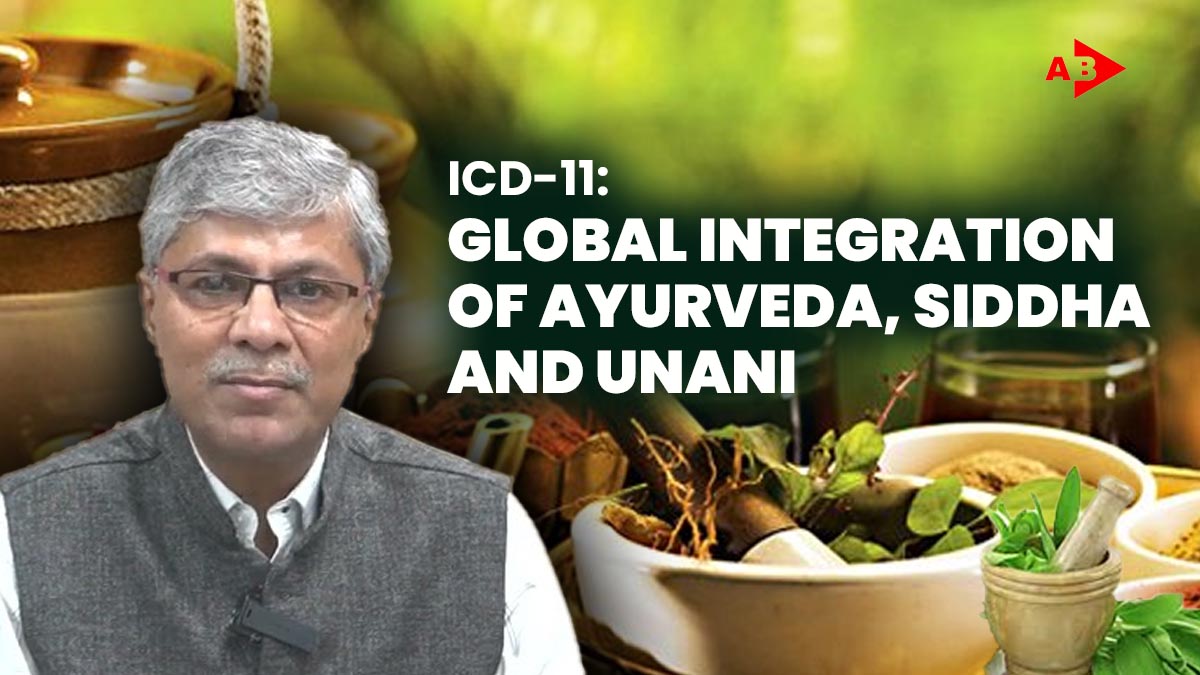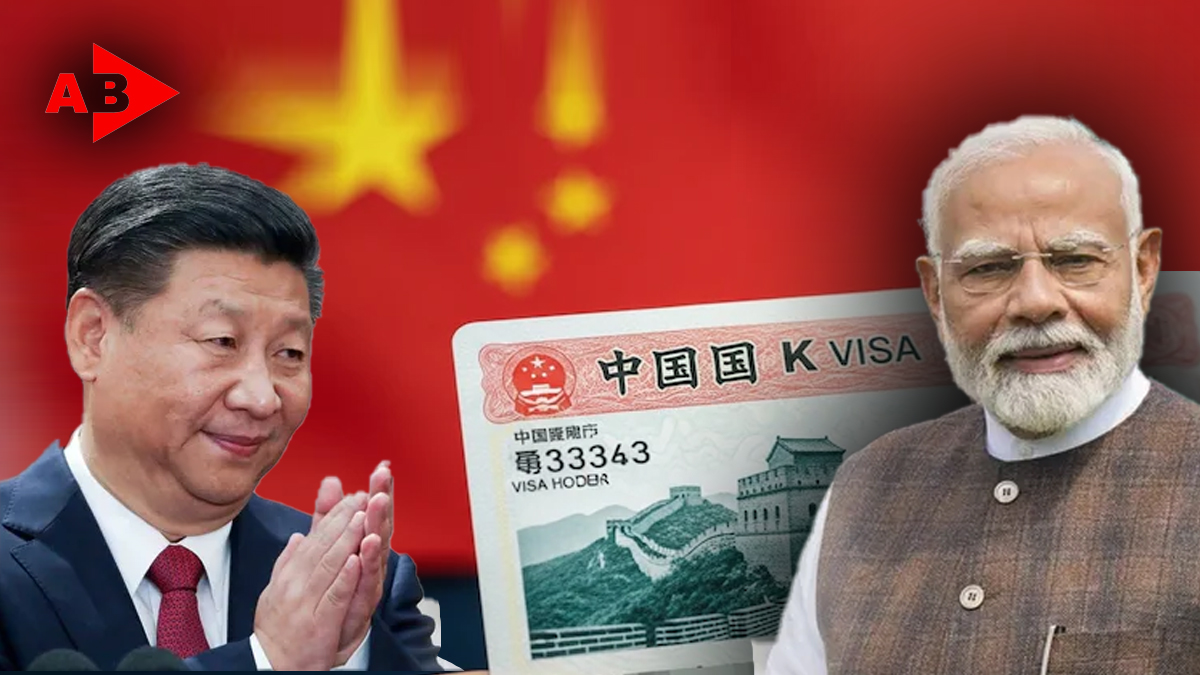
WHO’s decision to include Ayurveda, Siddha and Unani in ICD-11 marks a significant step towards global integration of traditional medicine.
Jotirmoy Roy, AB News Desk, New Delhi: The World Health Organization (WHO) has taken a ground-breaking step in the worldwide acknowledgment of traditional medicine with the upcoming 2025 update to the International Classification of Diseases (ICD-11). This update introduces an innovative module specifically focused on traditional medicine conditions, representing a pivotal advancement in the systematic documentation and integration of traditional healthcare practices, particularly Ayurveda, Siddha and Unani, into the global health framework.
This monumental update is the culmination of a year of rigorous testing and extensive discussions that began with the rollout of ICD-11 TM-2 on January 10, 2024, in New Delhi. The final discussions took place at a WHO meeting hosted by the National Institute of Health in Malaysia in November 2024, resulting in the official release of the ICD-11 TM2 module on the WHO’s ICD-11 Blue Browser.
Elevating Traditional Medicine’s Status in Global Health
The inclusion of traditional medicine in WHO’s health classification system ensures that Ayurveda, Siddha and Unani are officially recognized alongside conventional medical practices. This validation elevates the role of these systems in global health reporting, research and policymaking, making them integral to the dialogue on healthcare.
Vaidya Rajesh Kotecha, Secretary of the Ministry of Ayush, stated, “The 2025 update to the ICD-11 marks a significant step towards the global integration of traditional medicine, particularly Ayurveda, Siddha and Unani. This update enhances data collection and supports evidence-based policymaking, ultimately improving patient care and facilitating the inclusion of traditional medicine within national healthcare strategies. It is a monumental moment for traditional medicine and a crucial stride toward fostering holistic and inclusive healthcare worldwide.”
Dr. Robert Jakob, Team Leader of the Classifications and Terminologies Unit at WHO, added, “With the new updates, ICD-11 will become more user-friendly and improve interoperability and accuracy, benefiting national health systems and the populations they serve.”
A Global Platform for Ayurveda, Siddha and Unani
Traditional medicine has long played an essential role in the healthcare landscape, especially in Asia, Africa, and regions where indigenous practices complement modern medicine. The introduction of the ‘Traditional Medicine Conditions’ module in ICD-11 is a significant acknowledgment of the importance of Ayurveda, Siddha and Unani. This development aligns with WHO’s mission to pursue universal health coverage and sustainable development goals by recognizing the therapeutic potential of these ancient systems alongside contemporary medical practices.
The module allows healthcare providers to utilize dual coding for diagnoses in both traditional and conventional medicine, paving the way for comprehensive data collection regarding the effectiveness of traditional practices. By formally categorizing these healthcare systems, WHO enables researchers, policymakers, and healthcare providers to systematically evaluate the impact of traditional medicine on health outcomes globally.
Strengthening Evidence-Based Policies and Global Research
Incorporating traditional medicine into the ICD-11 offers numerous benefits for global healthcare. The module provides standardized terminology and definitions that will:
- Enhance Data Collection: Allow for comprehensive tracking of traditional medicine usage globally.
- Support Evidence-Based Policymaking: Facilitate the integration of traditional medicine into national healthcare agendas.
- Improve Patient Care: Enable healthcare providers to integrate traditional practices into holistic treatment plans.
- Enhance Global Comparability: Offer a framework for researchers to analyse traditional medicine efficacy vis-à-vis modern treatments.
By documenting traditional medicine practices systematically, WHO is fostering greater visibility and credibility for Ayurveda, Siddha and Unani on the international stage.
A New Era for Ayurveda, Siddha and Unani
The centuries-old systems of Ayurveda, Siddha and Unani have been foundational to healthcare for millions, particularly in India. Their formal recognition within ICD-11 provides an unprecedented opportunity to position these practices as critical components of holistic healthcare.
This inclusion not only enhances the global prominence of traditional medicine but also aligns with efforts for universal health coverage and health equity, placing traditional medicine alongside modern healthcare frameworks in global discussions.
Reinforcing Traditional Medicine’s Role in Healthcare
The traditional medicine module in ICD-11 is designed to focus on tracking morbidity data, which will assist governments and healthcare institutions in evaluating the quality, frequency and cost-effectiveness of traditional medicine interventions. This evidence-based perspective allows policymakers to make informed decisions regarding the integration of traditional medicine into national health systems.
As individuals increasingly seek out traditional healthcare options alongside modern treatments, WHO’s initiative highlights the importance of recognizing all forms of healthcare in public health strategies. By including traditional medicine in ICD-11, WHO is not only promoting inclusivity but also advancing comprehensive healthcare solutions for diverse populations.
The acknowledgment of Ayurveda, Siddha, and Unani in ICD-11 marks a transformative moment in how traditional healthcare systems are perceived and integrated worldwide. As global research, policy development, and healthcare practices increasingly move towards evidence-based approaches, this historic update is likely to significantly reshape the future of traditional medicine, ensuring its continued relevance in modern healthcare practices globally.


